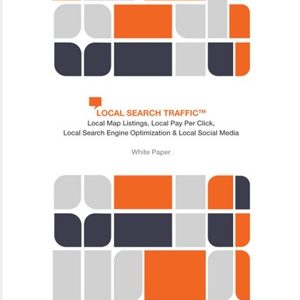
If Local Search were a building, it might look something like this…

(photo from the Telegraph)
The local search industry is always changing: new elements are added, old ones are removed, things are re-arranged, renamed, left unfinished, or even stolen. We’ve witnessed the rise of deals, check-ins, mainstream local results in search engine result pages (SERPs), review battles among giants, and numerous other methods for connecting local businesses with customers.
Because of this dynamic landscape, we see a phenomenon known as "storm chasers." These are individuals who frequently adapt their strategies, racing to capitalize on every new update and striving to be the first to discover the latest "secret" to cash in on until the next big change arrives.
Example
Recently, Google Places underwent a few cosmetic changes, resulting in the disappearance of citations from the Places page and the exclusion of third-party reviews. This is what the search results now look like:

In the review section of the Places page, only Google reviews are displayed, while third-party sites have been relegated to links below.

The topic of citations has already been discussed, but here’s my take on it. A storm chaser would interpret this update as a rush to secure Google Places reviews, ignoring third-party sites like Yelp and Citysearch. Their goal would be to ensure their listing has the most reviews compared to competitors on Google Places. Instead, a wise strategy would focus on the 3 pillars of local search reviews. These pillars are essential, as they form the foundation of a robust review strategy in the local search industry.
One: Diversity
Reason
Google assigns ranking importance to the variety of sites featuring business reviews. Is that reason enough to diversify? If not, consider the many issues Google has faced with misplaced reviews. More importantly, Google Places isn’t the only resource people use to find information about businesses.
For instance, the Yelp mobile app has significantly more reviews in the Apple Store than Google Places. Some industries have review-specific sites (like Urbanspoon for the food industry) that provide excellent systems for gathering reviews. Citysearch reviews can be left with a simple Facebook login, feed into both Bing and Google (now as links), and attract a substantial audience.
Ideas:
- Incorporate review links on your website from at least four different portals.
- Ask your Facebook friends to leave reviews on Citysearch.
- If you’re in a popular Yelp industry, print out and highlight some of your reviews at your place of business.
- Utilize your email list to request reviews based on the email service providers (Google, Yahoo, etc.) your contacts use.
The key is to use various methods to collect reviews and guide people to preferred sites. Most users have their favorite among the top review platforms.
Two: Consistency
Reason
Like all user-generated content, maintaining consistent reviews is challenging. Many businesses get excited initially, collecting numerous reviews, but then go months without requesting more. Here are a few reasons to strive for a steady flow of reviews:
- It appears natural. Mass influxes of reviews can seem spammy.
- Recent reviews raise trust levels, as they indicate current business quality.
- Constant reviews provide ongoing feedback on your products or services.
Ideas:
- Create a review pamphlet to prominently display or include with purchases.
- Include review portal links in your email signatures.
- Add review requests to invoices or receipts.
- Schedule different review campaigns monthly to maintain consistency.
The key is to commit to the importance of reviews and follow through. No competitor can sustainably compete against a consistent strategy.
Three: Reliability
Reason
Contrary to popular belief, reliability involves embracing all reviews, including negative and mediocre ones. A normal business cannot avoid criticism. Nothing raises red flags like a slew of only 5-star reviews. Encourage everyone to leave reviews. Even negative feedback can be beneficial as it provides valuable insights into areas needing improvement. A perfect business isn’t one with perfect reviews but one that handles its reviews and feedback perfectly.
Ideas:
- Feature a "review of the month" in your business to show active review monitoring and promotion.
- Use services that notify you of new reviews so you can respond accordingly.
- Highlight both positive and constructive reviews on a testimonials page, explaining how you’ve addressed any issues.
- Aim to have a history of reviews; numerous reviews create authenticity that a handful cannot.
Build the Pillars
Relying on a storm chaser strategy might seem easier. However, reviews are seen and read by your customers, unlike links and citations. If you do one thing right locally, focus on your reviews. Build on a strong and diverse platform to easily adapt to changes because your strategy will be based on these enduring pillars.



